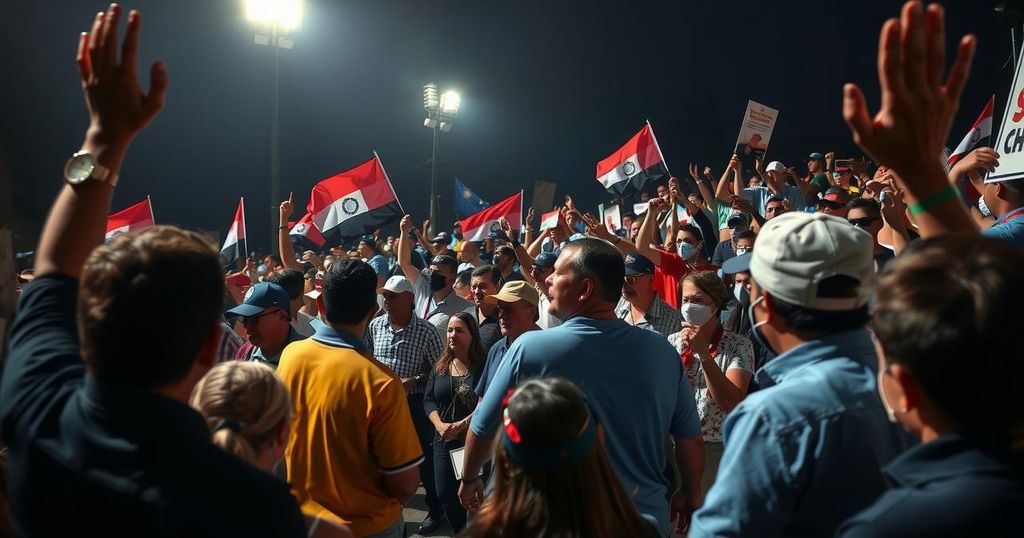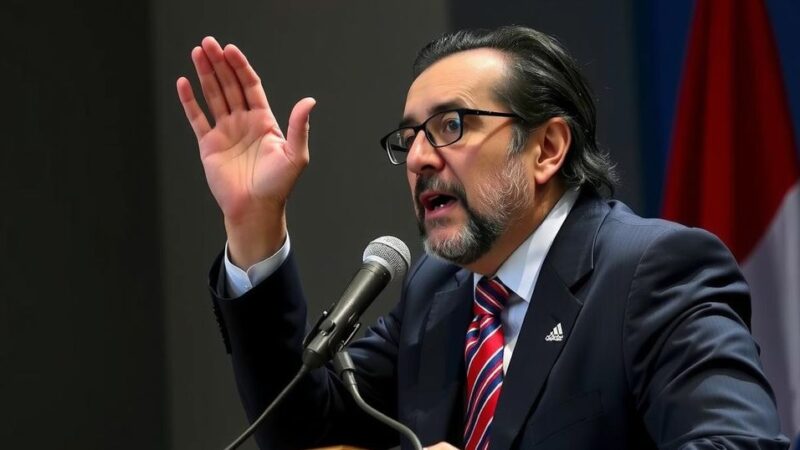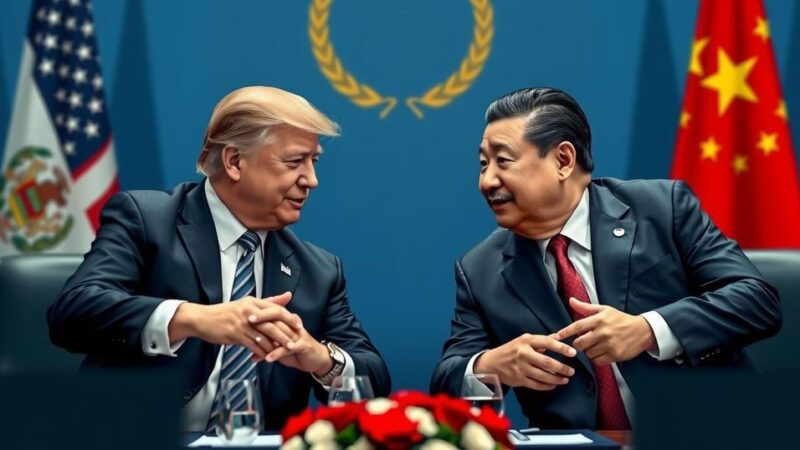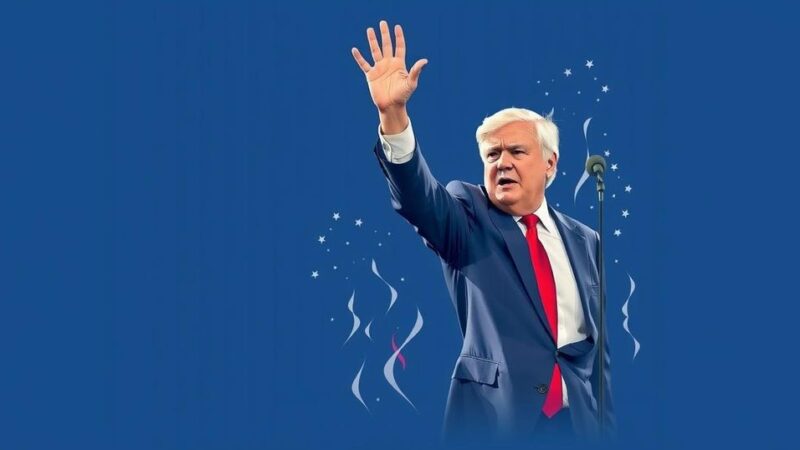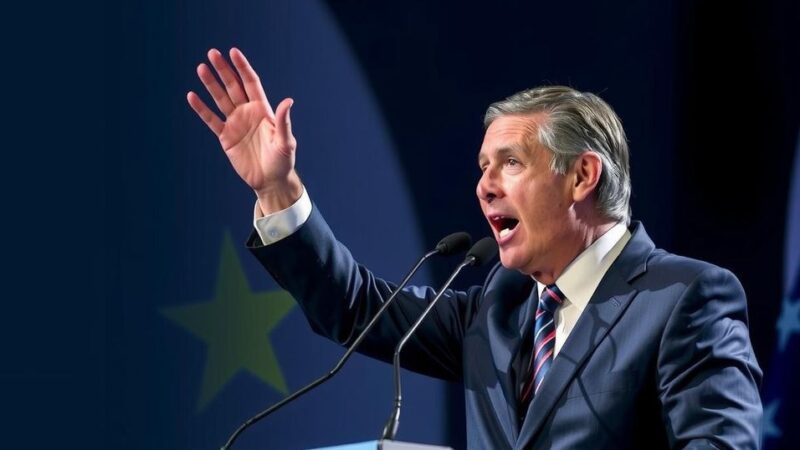Yamandu Orsi of the Frente Amplio party is leading in Uruguay’s presidential election, campaigning against Alvaro Delgado of the National Party. Poll results indicate Orsi receiving approximately 49 percent of the vote. The election comes after five years of conservative governance, with public safety and rising crime as significant issues for voters. Former President Mujica supports Orsi, emphasizing the importance of future leadership for younger generations.
Yamandu Orsi, the candidate from the leftist Frente Amplio alliance, is poised to claim victory in Uruguay’s presidential election, set for Sunday. This election represents a potential shift towards the left following five years of conservative leadership by the National Party, which is part of the ruling Republican Coalition. In a closely contested race, Orsi leads with approximately 49 percent of the vote, compared to Alvaro Delgado’s 46.6 percent, according to recent polls by Equipos Consultores and Cifra.
Supporting Orsi’s candidacy is the popular former president Jose “Pepe” Mujica, who is recognized for his humble lifestyle and significant political legacy. Orsi’s previous performance in the first-round voting reflected a strong showing, with 43.9 percent of the electorate favoring him, while Delgado garnered 26.7 percent from a field of eleven candidates.
The election is critical for many Uruguayans, who are directly influenced by issues such as safety and the rising crime rates observed over the past five years. Despite the challenges, voters expressed hope for positive change, indicating that ensuring public security remains a top concern for the nation. Compulsory voting in Uruguay underscores the importance of civic engagement in this stable democracy.
Mujica’s poignant remarks highlight intergenerational concerns, saying, “Personally, I have nothing more to look forward to. My closest future is the cemetery, for reasons of age. But I am interested in the fate of you, the young people who, when they are my age, will live in a very different world.” This sentiment resonates with many voters, emphasizing the desire for a progressive future under new leadership.
The impending results will signal whether Uruguay will revert to a leftist government following a significant period of conservative rule, characterized by a focus on crime and social policies that have further polarized voter sentiments.
Overall, as the nation prepares to cast its votes, the election could mark a pivotal turn in Uruguay’s political landscape, reflecting voters’ responses to past governance and aspirations for future reforms.
This article discusses the political dynamics surrounding Uruguay’s presidential election, focusing on the rivalry between leftist candidate Yamandu Orsi of the Frente Amplio and Alvaro Delgado from the National Party. With an electorate increasingly concerned about rising crime and social issues, this election is set against the backdrop of a previous conservative administration that has drawn criticism from voters. The historical context highlights the shift in governance and societal expectations from the electorate, particularly as they consider the direction of safety and policy reforms post-election.
In conclusion, Uruguay’s presidential election stands as a crucial moment for the nation, with Yamandu Orsi leading against conservative Alvaro Delgado. Voters are responding to five years of center-right rule, voicing their concerns about crime and public safety. As the nation votes, the outcome will significantly influence Uruguay’s political trajectory and address the pressing issues that have emerged during the recent conservative governance. The influence of prominent political figures like Mujica adds depth to the electoral landscape and highlights the intergenerational implications of the election.
Original Source: www.france24.com
